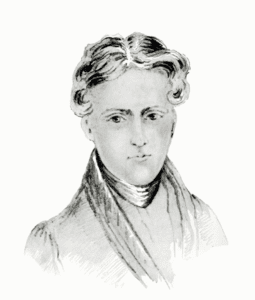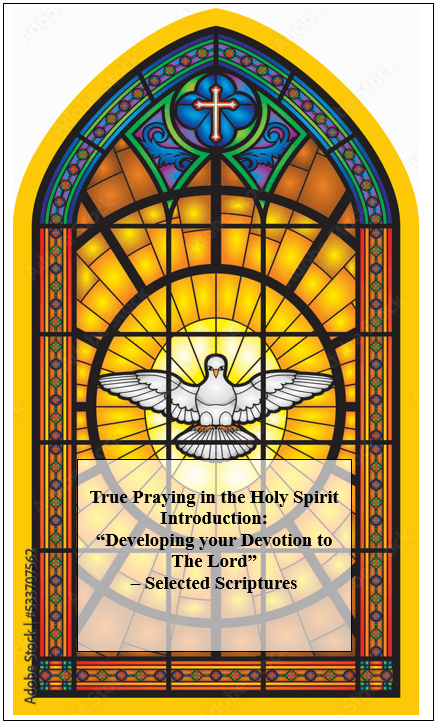“Walk circumspectly, not as fools but as wise, redeeming the
time, because the days are evil. Therefore, do not be unwise, but
understand what the will of the Lord is!”
- The will of the Lord for your future begins with our obedience to the will of the Lord for us today.
- The most frustrated Christian today is the one who, after losing sight of His major goal, doubles his efforts to achieve it.
- If we try to attack everything at once we will probably not make any progress at all, but if we narrow our focus down to that which is most important, we might be able to make a difference.
- However, if we are to accomplish the main purpose for which God allowed us to live in this day, Christians need to learn to walk in this world as Jesus did; attentive to the temporal needs, but always keeping his focus upon the eternal, which was His mission to give His life as ransom for our sins.
- Even though Jesus was constantly barraged with the temporal needs of the people who followed Him, and berated by the Jewish Religious Leaders who taunted Him, and threatened by the leaders of the Roman government who were waiting for Him to say something that would give them cause to arrest Him, Jesus revealed to His disciples that His greatest priority was His personal communion and fellowship with God the Father through what we know as prayer!!
- Matthew 14:13, Matthew 14:22, Mark 1:35, Luke 5:16, John 7:40ff-8:1 “And everyone went to his own house, but Jesus went to the Mount of Olives.”
- Jesus told them He had no power of His own, that He could do nothing of His own accord, but that His will was to do the will of God the Father, and that the power to do those amazing miracles was from the Father. The disciples saw the connection between Jesus’ prayer life and:
- His miracles, His messages, His ministry and His methods.
- His power over nature, sickness, disease, even demons.
- His ability to see the true needs of the people and meet them.
- His wisdom to know what to do, and to whom, and when to withdraw to avoid being arrested before His hour had come.
The disciples saw the results of Jesus’ intimate fellowship with God the Father, and they cried out: “Lord, teach us to pray!”
- As Jews, the disciples were disciplined to pray three times each day – 9:00 AM (the third hour) 12:00 PM – (the sixth hour), 3:00 PM – (the ninth hour). These times for Jewish prayer correlate to Jesus’ death on the cross. He was crucified at 9:00 a.m. (Mk 15:25), Darkness fell over the land starting at 12:00 p.m. [noon] (Mt 27:45) (Mk 15:33) (Lk 23:44), and Jesus died at 3 p.m. (Mt 27:46) (Mk 15:33).
Prayer must be our top priority today:
- For most of us, prayer is our preparation for a work or a battle.
- For Jesus, prayer was the work, and the ministry was the prize.
- On the night before He was crucified, Jesus cried out to God the Father in the Garden of Gethsemane.
- On the day He was crucified, Jesus walked to the cross with courage, strength, honor, and victory.
- Jesus was showing us that we can be no more powerful in our daily lives than we are in our private prayer life.
“What a man is on his knees before God
is what he is, and nothing more.”
Robert M’Cheyne
- The reason we are failing in the battle for the souls of men, is not because we aren’t attracting them with the right methods, but because we haven’t won the battle for their souls in prayer.
- If Christians could get this vision of the power available to us in prayer:
- We could go into this world of darkness and our lights would shine as bright as the power of God.
- We could go into this sin-sick society, and our salt would be powerful enough to preserve some from sin.
- We could go into our homes and build our marriages on the pattern God set forth in His world, and be the role models God has called us to be for our children.
- We could be the people of God He has called us to be, and the witnesses to others that He has called us to be.

Beginning the Day with Prayer—Robert Murray M’Cheyne (1813 – 1843) Robert Murry M’Cheyne was a nineteenth-century Church of Scotland minister revered for the depth of his piety. Upon hearing him preach, a listener once wrote, “I saw in you a beauty in holiness that I never saw before.” He served two churches, including St. Peter’s Church in Dundee, before dying at age 29.
“I ought to pray before seeing any one. Often when I sleep long, or meet with others early, and then have family prayer, and breakfast, and forenoon callers, often it is eleven or twelve o’clock before I begin secret prayer. This is a wretched system. It is unscriptural. Christ rose before day, and went into a solitary place. David says, ‘Early will I seek Thee; Thou shalt early hear my voice.’ Mary Magdalene came to the sepulchre while it was yet dark. Family prayer loses much of its power and sweetness; and I can do no good to those who come to seek from me. The conscience feels guilty, the soul unfed, the lamp not trimmed. Then, when secret prayer comes, the soul is often out of tune. I feel it is far better to begin with God—to see his face first—to get my soul near him before it is near another. ‘When I awake, I am still with Thee.’ If I have slept too long, or am going [on] an early journey, or my time is any way shortened, it is best to dress hurriedly, and have a few minutes alone with God, then to give it up for lost. But, in general, it is best to have at least one hour alone with God, before engaging in anything else.”







